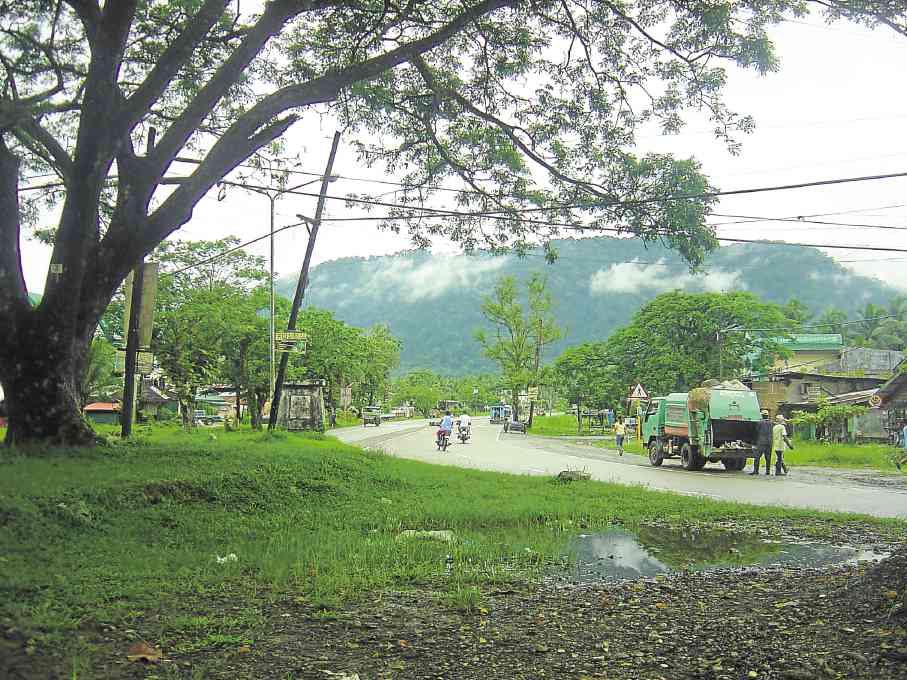Watershed stops floods

The forest cover of Mt. Magdiwata in San Francisco town in Agusan del Sur province has been fully restored, thanks to reforestation efforts initiated by San Francisco Water District. —CHRIS V. PANGANIBAN
SAN FRANCISCO, Agusan del Sur—A watershed has protected this town from massive floods that swept the entire province last month, according to a local forest expert.
Bonifacio Narca, forester of San Francisco Water District (SFWD), said at least 1,650 hectares of Mt. Magdiwata had been declared as a watershed free from commercial activity, including logging.
Narca said the watershed continues to enjoy a 95-percent forest cover which had been effective in preventing runoffs from flood from reaching the town center’s five villages.
Parts of the watershed that had been destroyed, manifested by a crack about a hectare in diameter found on Magdiwata in January 2014, had been rehabilitated.
Naturally grown trees had taken root in the area, preventing landslides, said Narca.
Article continues after this advertisementThe trees, he said, were spaced up to eight meters apart and are dipterocarps and “deep-rooted species.” They helped “hold loose prismatic soil (soil that forms into pillars or columns) in that part of the mountain,” Narca said.
Article continues after this advertisementDuring inspection in 2014, geologists from the Mines and Geosciences Bureau (MGB) found cracks that could unleash landslides on a community near a creek at the foot of the mountain. The area had been identified as a buffer zone for the watershed.
Natural occurrences
Narca said small landslides were reported in areas of the watershed with steep slopes, but these were natural occurrences and negligible. The area’s thick forests would cushion any landslide, he said.
Forest rangers, he said, had been keeping watch for not only loggers but also helping clear waterways of tree branches and rocks.
Elmer Luzon, SFWD general manager, said the monitoring of the Magdiwata watershed, which had been proclaimed by Malacañang as a permanent watershed, is part of the utility firm’s regular program.
SFWD has been at the forefront of rehabilitating what used to be an endangered mountain with only 40 percent forest cover in 1997, brought by the onslaught of logging operations by big companies and indiscriminate slash-and-burn farming by settlers.
No barrier
Narca, a forester for more than 30 years, said the Pantaron mountain range in Bukidnon province is incapable of serving as a barrier against floods and landslides because its old trees are on steep slopes and are up to 15 meters apart.
Water dumped on Pantaron by the recent relentless rains simply cascaded down Agusan Marsh and Agusan River, supposedly the catch basin of floodwaters.
Many residents of La Paz town, the hardest hit by the flooding, supported the theory that the floodwaters were a result of Pantaron’s inability to serve as a barrier.
Elsewhere in the province, an anti-illegal logging task force announced the seizure of 198 pieces of illegally sawn logs just as President Duterte announced plans to declare a total ban on logging.
The logs were seized in the village of Marfil, Rosario town, tagged as an illegal logging hotspot.
A report by the task force said the logs were abandoned near Rosario’s boundary with Surigao del Sur province.
The antiforest poaching operation came after Mr. Duterte announced the creation of a committee to study the implementation of a total ban on logging. —CHRIS V. PANGANIBAN